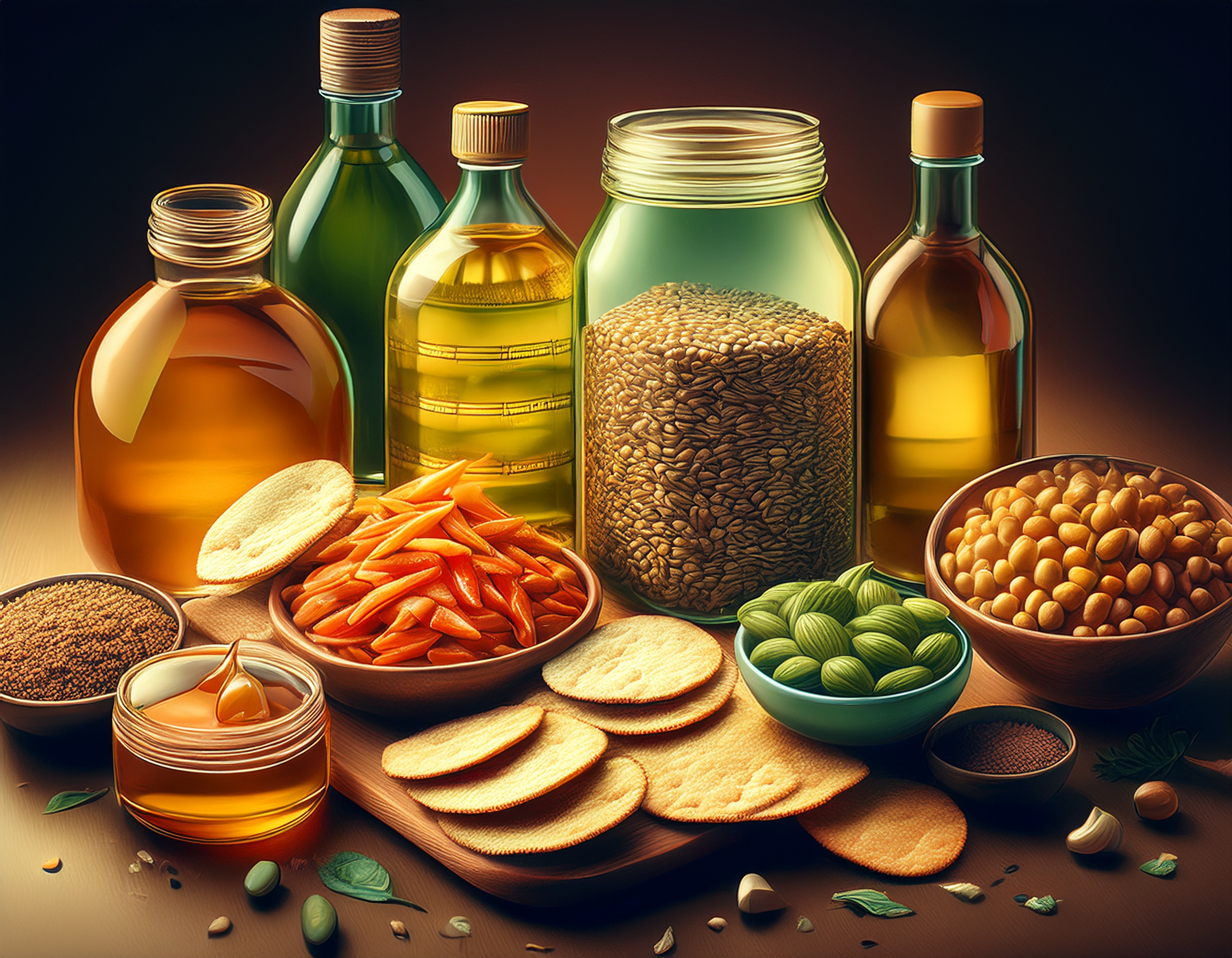Seed Oil Additives in Processed Foods: Hidden Names, Health Risks, and What to Avoid
Mar 30, 2025
By Andrew Wilson
What You Need to Know About Seed Oil Additives in Food
Seed oils are everywhere. You’ll find them in chips, crackers, salad dressings, frozen meals, and even so-called “health” foods. The food industry doesn’t just use seed oils for cooking. They break them down into chemical additives and mix them into processed foods under names you may not recognize. That’s on purpose. The more you understand how these additives work—and what they do to your health—the better choices you can make.
What Are Seed Oils?
Seed oils are industrial oils extracted from seeds like:
- Soybeans
- Corn
- Sunflower
- Safflower
- Cottonseed
- Grapeseed
- Canola (rapeseed)
They’re heavily refined using high heat, chemical solvents (like hexane), and deodorizers to remove the rancid smell. The result is a shelf-stable, flavorless oil used widely in processed foods.
Why Food Companies Use Seed Oil Additives
- Cheap: Seed oils are cheaper than traditional fats like butter or olive oil
- Long Shelf Life: Processed with preservatives to resist spoilage
- Neutral Flavor: Doesn’t affect taste of processed foods
- Acts as Emulsifier or Stabilizer: Helps foods mix better or maintain texture
Hidden Names of Seed Oil Additives
Many seed oil-derived additives sound nothing like “oil.” Here’s a breakdown:
Vegetable Oil
- Usually means: Soybean oil, corn oil, cottonseed oil, or canola oil
- Used for: Frying, baking, and mixing in snacks and spreads
- Health risks: High in omega-6 fats, may trigger chronic inflammation
Partially Hydrogenated Oils (Trans Fats)
- Usually from: Soybean or cottonseed oil
- Used for: Shelf-stable baked goods, margarine
- Health risks: Increases risk of heart disease, banned in many countries but still found in small quantities
Mono- and Diglycerides
- Made from: Seed oils
- Used for: Emulsifiers in ice cream, bread, peanut butter
- Health risks: May contain trans fats, disrupt gut health, spike inflammation
Lecithin (Soy Lecithin, Sunflower Lecithin)
- Derived from: Soybean or sunflower oil
- Used for: Emulsifier in chocolate, dressings, energy bars
- Health risks: Can cause allergic reactions, may contain residual solvents from processing
Vegetable Shortening
- Contains: Hydrogenated soybean or cottonseed oil
- Used for: Baking pies, cookies, processed snacks
- Health risks: High in saturated fat and trans fat; contributes to obesity and cardiovascular issues
Tocopherols (Mixed Tocopherols, Vitamin E added as preservative)
- Often derived from: Soybean oil
- Used for: Preventing oxidation in cereal, oils, and snacks
- Health risks: Generally considered safe in small amounts, but may indicate processed oil source
Glycerin / Glycerol
- May come from: Seed oils or animal fats
- Used for: Moisture retention in baked goods, candy, and protein bars
- Health risks: Can disrupt gut bacteria in high doses
Polysorbates (Polysorbate 60, 65, 80)
- Made from: Ethoxylated seed oils
- Used for: Stabilizers in ice cream, creamy sauces
- Health risks: May impact gut barrier function and immune system
Why It’s Hard to Spot These Additives
Food labels don’t say “seed oil derivative.” They say:
- “Vegetable oil”
- “Mono- and diglycerides”
- “Natural flavors”
- “Emulsifier”
- “Lecithin”
These are technical or generic terms. Most consumers have no idea they’re eating heavily processed oils. Food companies use these names to avoid triggering concern. A label with “canola oil” might scare off a buyer. “Lecithin” sounds clean and natural.
Health Issues Linked to Seed Oil Additives
Many of these additives are:
- High in omega-6 fatty acids, which can lead to chronic inflammation
- Chemically processed, sometimes using toxic solvents like hexane
- Oxidation-prone, creating harmful free radicals when heated
- Disruptive to metabolism, insulin response, and gut microbiota
These effects build up over time. They contribute to:
- Heart disease
- Obesity
- Autoimmune conditions
- Cognitive decline
- Hormonal imbalance
What You Can Do
- Read labels carefully. Look for all the names above.
- Avoid anything with “vegetable oil” unless it specifies olive, avocado, or coconut.
- Cook with whole fats like butter, ghee, olive oil, or grass-fed tallow.
- Choose whole foods—not processed ones—whenever possible.
Choose Transparency Over Convenience
Seed oil additives are everywhere in processed foods—and they’re often hidden behind names designed to mislead. If you want to protect your health, start by avoiding foods that need additives to taste good or last longer. The closer your food is to nature, the easier it is for your body to handle.
Whole foods don’t need additives...Your health doesn’t either.
Get the Free Trial to Try Memios

